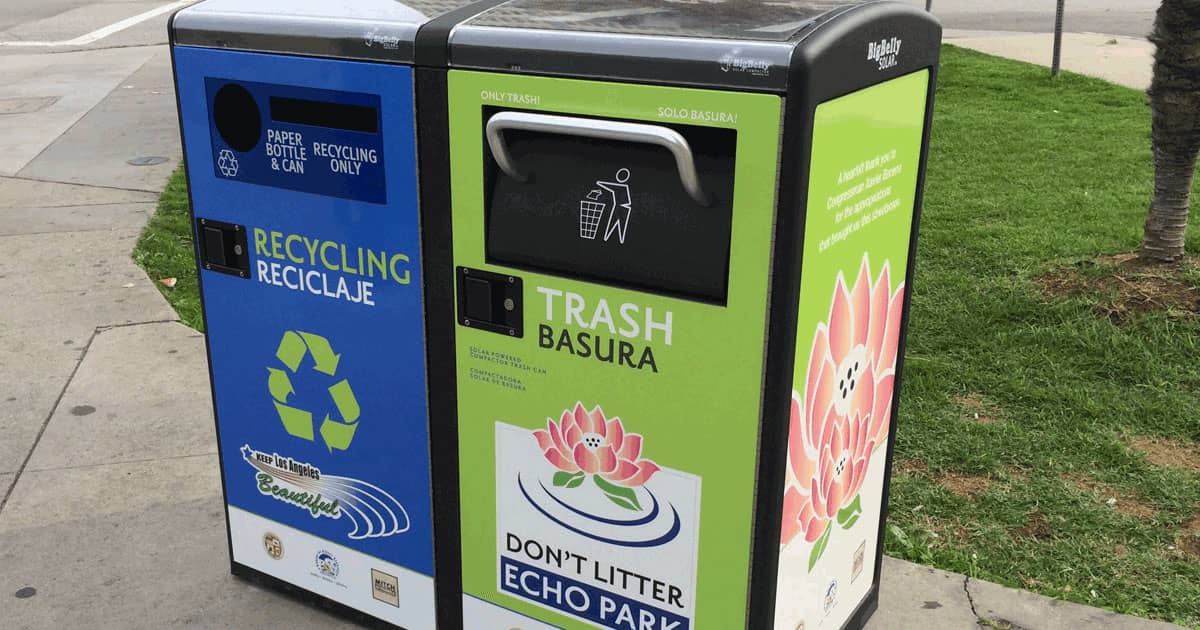What Is a Smart Recycling Bin?
A smart recycling bin represents an innovative and technologically advanced upgrade from traditional waste bins. Its primary goal is to reduce landfill waste by incorporating sensors, connectivity features, and data analytics capabilities. These bins enhance waste management and recycling processes, making them more efficient and convenient for businesses and consumers.

Beyond basic sensors and data capture, smart recycling bins may include auto-sorting technologies and compactors. AI-powered systems efficiently identify waste types and direct them to the appropriate containers. When the bins reach capacity, waste streams are diverted to the correct recycling facilities.
Advantages of Smart Waste Bin Technology
Smart waste bins offer significant advantages over traditional waste management methods, ensuring better waste sorting before it reaches recycling facilities. Some key benefits include:
Efficient Waste Collection:
- Conventional waste collection relies on fixed schedules, often resulting in unnecessary trips and resource wastage.
- Smart bins equipped with fill-level sensors and IoT connectivity disrupt this approach by continuously monitoring fill levels.
- Real-time data helps waste management operators create dynamic collection routes, prioritizing bins nearing full capacity. It reduces collection trips and minimizes carbon emissions from fuel consumption.
Data-Driven Insights:
- Beyond optimizing routes, data from smart bins provides valuable information for improved waste management strategies.
- Analyzing waste generation patterns and trends offers insights into community and individual behaviors.
- Identifying peak waste generation times allows better resource allocation, and understanding common waste types informs targeted recycling campaigns.
Behavioral Change:
- Smart bins influence individual behavior through real-time feedback.
- Users become more conscious of their waste disposal habits when they see the direct impact on bin fill levels and collection efficiency.
- This behavioral shift extends beyond bin usage, inspiring sustainability practices in daily life.
Cost Savings:
- Optimized collection routes mean fewer trips, reduced labor, and lower fuel costs.
- Preventing overflow and littering further reduces cleanup and maintenance expenses.
- These cost savings align with broader sustainability goals, making waste management more responsible and environmentally friendly.


